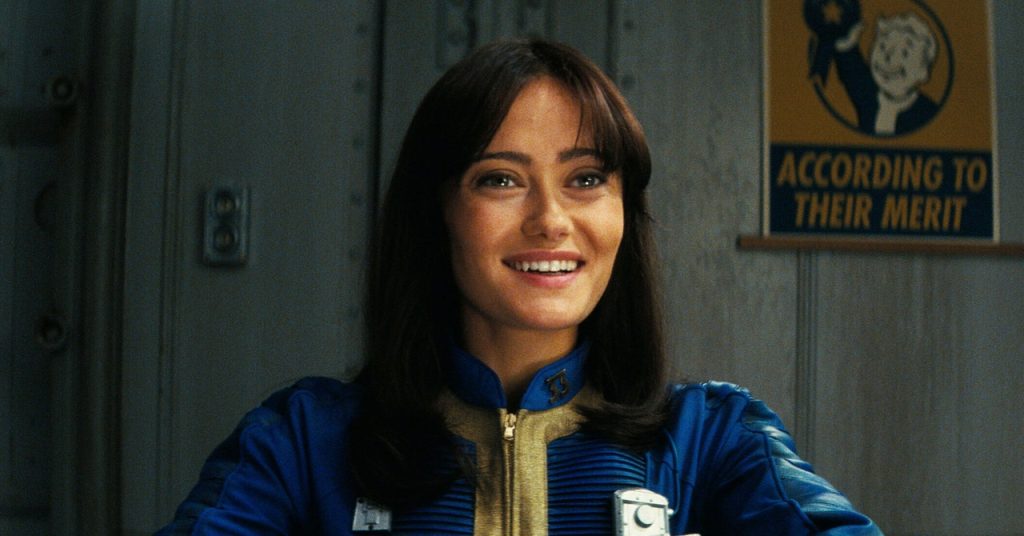Navigating the Apocalyptic Landscape: Showrunners’ Vision for Fallout Series
Introducing the Protagonists
In their quest to bring the Fallout universe to life, showrunners Graham Wagner and Geneva Robertson-Dworet chose to focus on three central characters, each at a pivotal moment in their lives. Walton Goggins portrays a ghoul, once a celebrated cowboy movie star, now hardened and lawless after enduring 219 years of loss since the apocalypse began. Aaron Clifton Moten plays Maximus, a former orphan who joins the ranks of the Brotherhood of Steel, a paramilitary tech-protecting organization, and stumbles upon an opportunity for greatness. Ella Purnell takes on the role of Lucy MacLean, a sheltered Vault Dweller who ventures into the treacherous Wasteland to rescue her abducted father, played by Kyle MacLachlan.
Exploring Familiar Fallout Elements
The showrunners made a conscious decision to incorporate iconic elements from the Fallout games. Wagner explains the inclusion of the Brotherhood of Steel, citing their complex history and the intriguing dilemmas they’ve faced over the years. Additionally, the series begins with a Vault Dweller protagonist, mirroring the player’s experience in most Fallout games as they emerge from a confined space to explore a bizarre new world. The introduction of The Ghoul, an unplayable character in the games, was a deliberate choice to showcase the ostracized members of the Fallout universe.
Balancing Humor and Gravity
One of the defining characteristics of the Fallout franchise is its gallows humor, a satirical approach to the grim realities of life after nuclear devastation. The series embraces this tone, juxtaposing heart-wrenching moments delivered by child actors with lighthearted sexual innuendos and an almost comical level of violence. Wagner acknowledges the challenge of striking the right balance, ensuring that the apocalyptic setting doesn’t become overwhelming for viewers.
We did edits of episodes where there were long stretches without comedy because that was what we felt like the story needed, and it was just like, ‘Gosh, that’s a lot of apocalypse.’ We wanted to make the apocalypse a place we all wanted to go to.
Reflecting on the Apocalypse
While some viewers might find the show’s themes and scenarios uncomfortably relevant in today’s world, Nolan clarifies that the development of the series began in 2019, before the onset of the ” and the escalation of conflicts in the Middle East. Nevertheless, he recognizes that the show serves as a poignant reminder of humanity’s ongoing struggle to determine its fate, whether it will thrive or succumb to self-destruction.
Wagner suggests that the concept of the apocalypse is relative, with humanity perpetually on the brink of perceived doom. He humorously remarks that for some, the apocalypse arrived when women entered the workforce or began wearing pants, emphasizing the subjectivity of the end times.
Looking to the Future
As for the future of the Fallout series, Nolan reveals that the team has a roadmap in mind, should they be fortunate enough to secure a second season. However, he cautions against planning too far ahead in the world of television, drawing from his experience with the beloved but ultimately canceled HBO series, “Westworld.”
In television, though, you have to be careful not to leave too much down the road. We just want to concentrate on making one great season of television. If it works well and there’s an opportunity to go again, I very much hope we get that chance.

3 Comments
So, we’re rooting for the apocalypse now? Talk about a plot twist!
Who knew the end of the world could be such a blast to watch?
Turning the end of days into a hit show? Now that’s a creative twist!